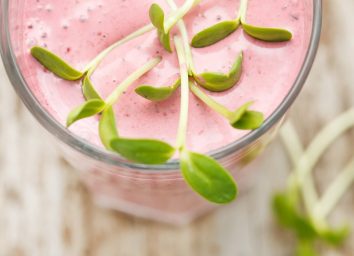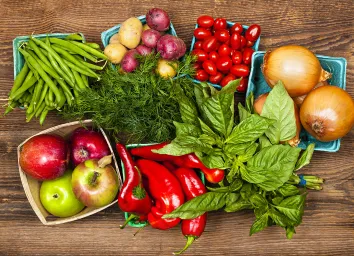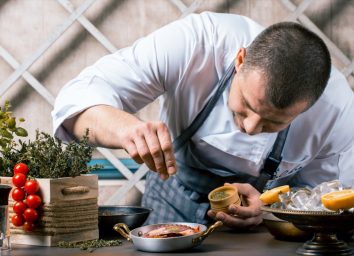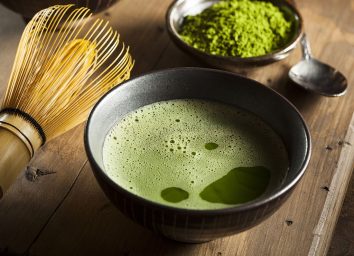12 Surprising Vegetables That Become Healthier When They’re Cooked
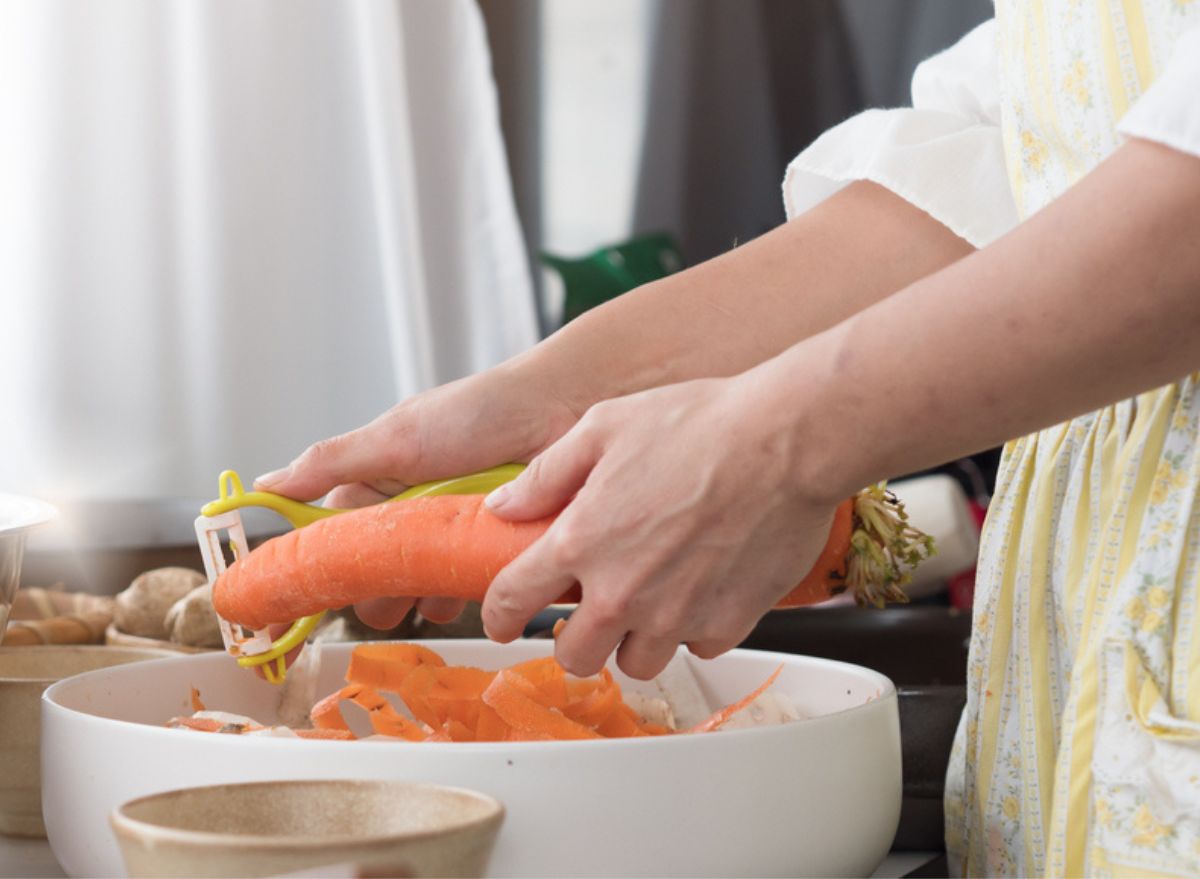
You’re well aware that vegetables are good for you—but did you know that their nutritional value depends on how you prepare them? The raw food diet has definitely generated a lot of hype in recent years, due to the fact that some naturally-occurring vitamins and phytonutrients are destroyed once certain foods are cooked. But as it turns out, there are some vegetables that are healthier cooked. Why? Because cooking vegetables often makes it easier for you to absorb the important nutrients that they contain.
In fact, one study published in the American Journal of Clinical Nutrition revealed that women who followed a wholesome nutrition diet (based on healthy dietary recommendations) absorbed more of the beta-carotene than the women who followed a raw food diet. In other words, even though women who adhered to a raw food diet consumed more of that crucial antioxidant, they reaped less of its benefits.
The bottom line is, cooking certain vegetables makes many of their nutrients more accessible for your body to use—not to mention, they can be a little tastier and easier to digest. So, which ones should you be cooking? Consider turning up the heat on these 12 veggies that are more nutritious when cooked. And if you’re looking to start your day off the right way, be sure to check out What Happens to Your Body When You Drink a Smoothie Every Day.
Tomatoes
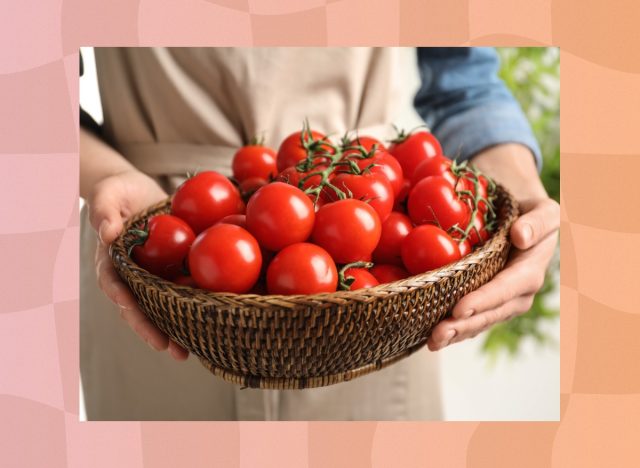
According to the Department of Nutrition and Exercise Science at Bastyr University, tomatoes lose a lot of vitamin C when they’re cooked. However, a 2002 study published in the Journal of Agriculture and Food Chemistry found that cooked tomatoes have significantly higher levels of lycopene than raw ones, likely because the heat helps to break down the thick cell walls, which contain a number of important nutrients. That’s worth noting because lycopene is one of the most powerful antioxidants available—and it’s been linked to a lower risk of numerous chronic diseases, like cardiovascular disease and cancer.
As for how to cook them, lycopene is absorbed by your body more effectively when consumed with a healthy fat, so pair your roasted tomatoes with olives, or drizzle them with extra-virgin olive oil.
Asparagus
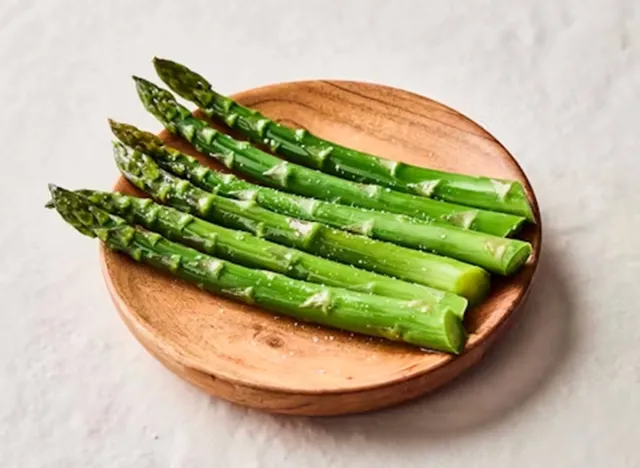
This springtime veggie is chock-full of cancer-fighting vitamins A, C, and E — and a 2009 study published in the International Journal of Food Science & Technology revealed that cooking it boosted its antioxidant activity by 16 to 25%. Meanwhile, another 2009 study published in the International Journal of Molecular Sciences found that cooking asparagus increased its levels of phenolic acid, which is associated with a reduced risk of cancer.
Note that because vitamins A and E are both fat-soluble, meaning they become easier for your body to absorb when they’re paired with a fat source, you should consider cooking your asparagus in olive oil, or serving it with some toasted seeds.
Spinach
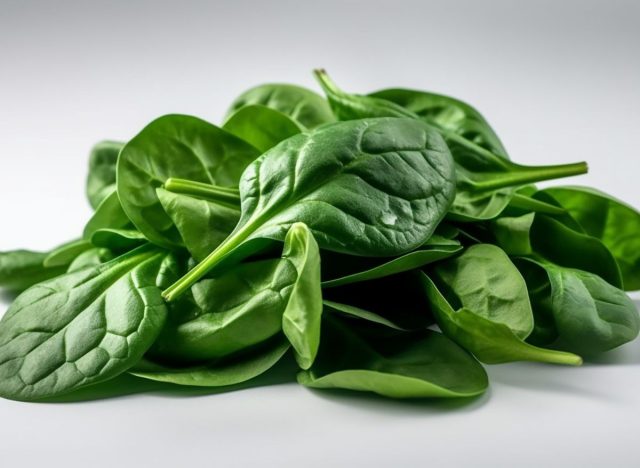
Ever noticed how this dark leafy green shrinks when you cook it? That means you’re likely to eat more of it, and, of course, consuming more spinach means you’ll reap more of its nutrients. But that’s not all—a 2005 study in the Journal of Agricultural and Food Chemistry showed that steaming spinach can reduce the vegetable’s oxalic acid—which interferes with your body’s absorption of iron and calcium—by up to 53 percent. Plus, research has revealed that steaming this veggie ensures that it retains its levels of folate, an important B vitamin that not only plays a role in making DNA but can also reduce the risk of several types of cancer. And according to North Ohio Heart/Ohio Medical Group, cooked spinach packs more calcium, magnesium, and iron.
Mushrooms
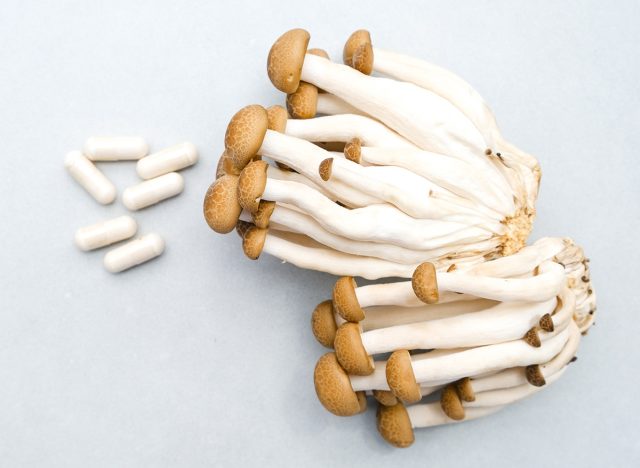
Antioxidants are heroic little substances that can protect your cells from damage, which may reduce your risk of certain chronic diseases. Mushrooms (which are technically fungi) happen to be packed with antioxidants, and a 2006 study published in the journal Food Chemistry discovered that exposing this veggie to heat drastically enhanced its overall antioxidant activities. As an added bonus, cooked mushrooms have higher levels of potassium, niacin, and zinc than raw ones, according to The U.S. Department of Agriculture’s nutrient database reports.
Not only that, but certain types of raw mushrooms contain agaritine, a potentially cancer-causing substance—and cooking them helps to get rid of this toxin.
Celery
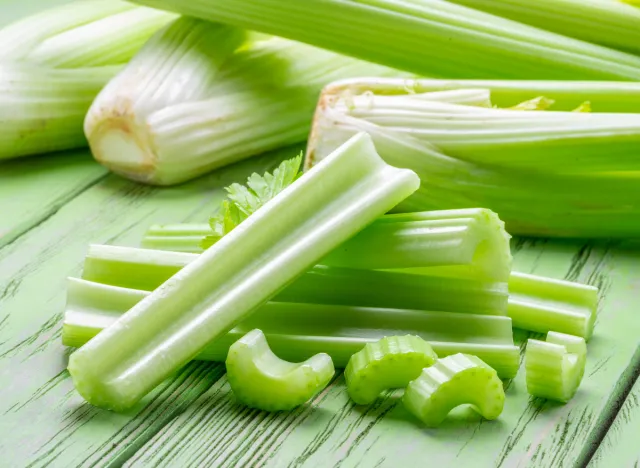
Before you go munching on some crudités, consider this: According to a 2009 study in the Journal of Food Science, celery becomes healthier when it’s cooked. Note, however, that its antioxidant capacity only increased via certain cooking methods, including microwaving, pressure-cooking, griddling, frying, and baking. When boiled, this veggie actually lost 14 percent of its antioxidant activity.
Carrots
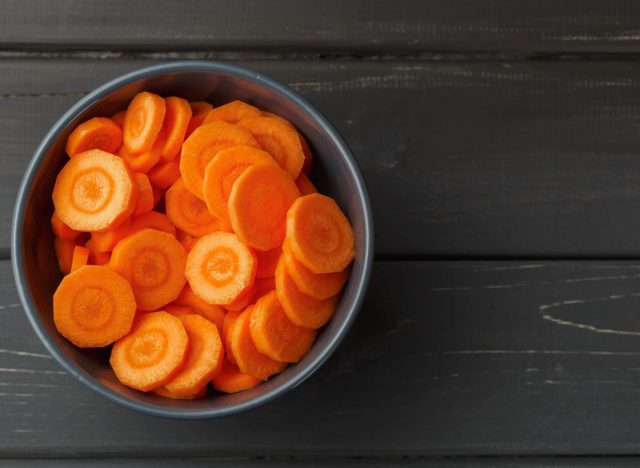
Beta-carotene is a substance called a carotenoid that the body converts into vitamin A, which plays a key part in supporting bone growth, enhancing your vision, and keeping the immune system in tip-top shape. It’s also responsible for giving carrots their orange hue, and a 2000 study published in the Journal of Agricultural and Food Chemistry demonstrated that cooking this vegetable boosts its beta-carotene levels.
And that’s not all—another 2009 study in the Journal of Food Science revealed that cooking carrots with the skins on can triple their overall antioxidant power. Whether you opt to roast them or boil them is up to you—just be sure to skip the frying pan, as this method reduced carotenoid levels by 13 percent. Also, given that a 2003 study in the International Journal for Vitamin and Nutrition Research discovered much higher levels of phytonutrients in carrots that were cooked with less water, microwaving is an excellent option (because this method can heat the veggie quickly with minimal water needed).
Green Beans
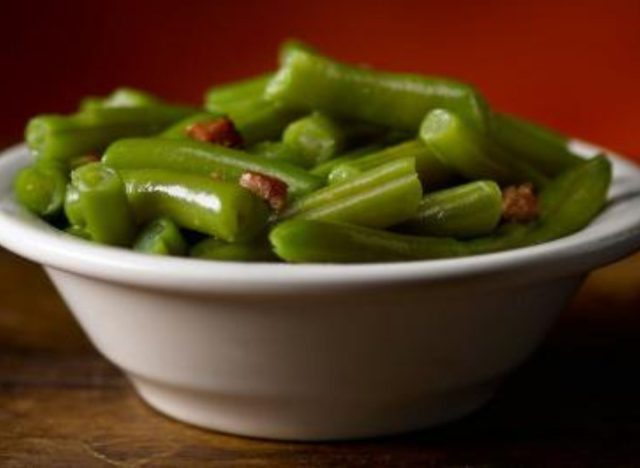
Green beans are another one of the many vegetables that are healthier cooked. According to a 2007 study in Nutrition Research, steamed green beans may have greater cholesterol-lowering benefits than raw green beans.
Still, the only way to reap these nutritional rewards is by cooking them the right way. Research published in the Journal of Food Science revealed that green beans have higher levels of antioxidants when they are baked, microwaved, griddled, or even fried—but not when they are boiled or pressure cooked. Who knew frying a veggie could actually be healthier than boiling it?
Kale
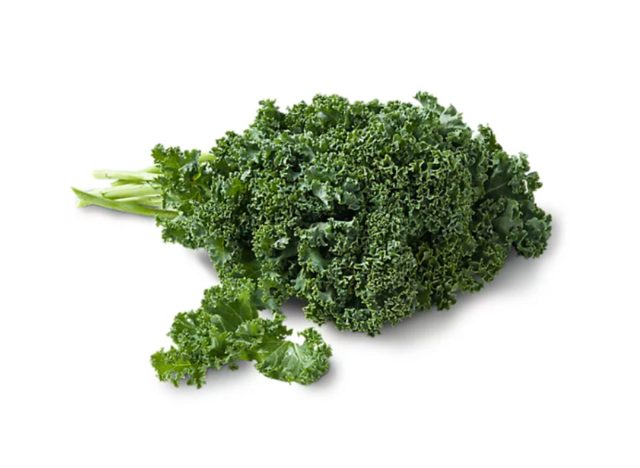
If chowing down on a bowl of raw kale doesn’t sound all that appetizing to you, rejoice: This cruciferous veggie has some advantages when it’s cooked. According to the Harvard School of Public Health, raw kale contains isothiocyanates, which prevent the body from using the iodine it needs for the thyroid (which helps to regulate the metabolism). However, cooking this veggie deactivates the enzymes that trigger that potentially harmful effect. That’s why Harvard School of Public Health recommends lightly steaming your kale, which will help you to avoid this issue while minimizing antioxidant loss.
Eggplant

Odds are, you’re more likely to cook your eggplant than eat it raw—but here’s a little extra incentive to heat this vegetable. A 2007 study in Nutrition Research found that steaming eggplant allows its components to bind together with bile acids, allowing the liver to more easily break down cholesterol and reduce its presence in the bloodstream.
But not all cooking methods are created equal when it comes to eggplant. One 2016 study in Food Chemistry showed that when grilled, this veggie retained higher amounts of chlorogenic acid, which slows down the release of glucose into the bloodstream (thus potentially lowering your blood pressure and risk of diabetes). On the other hand, when the eggplant was boiled, it retained more of the antioxidant delphinidin.
It’s also worth mentioning that raw eggplant contains the toxin solanine—although you would need to consume a lot of it to experience its gastrointestinal effects.
Brussels Sprouts
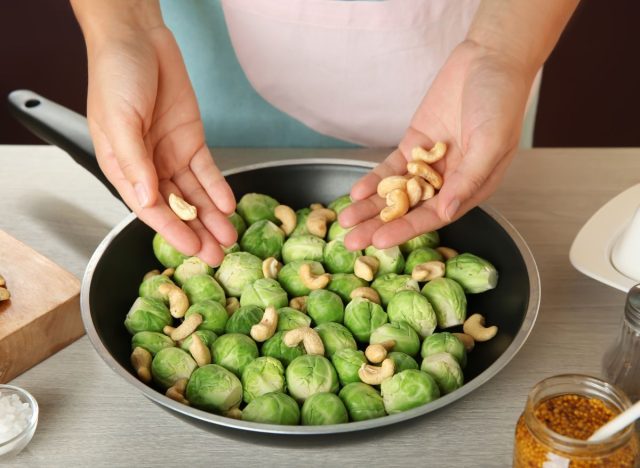
Not a fan of raw Brussels? No problem. Because as it turns out, this cruciferous veggie produces indole—a compound that’s been found to kill precancerous cells—when it’s cooked.
Cooking this particular vegetable also causes the glucosinolates to break down into compounds that are known for having cancer-fighting capabilities, according to Harvard Health.
Besides, some of the sugars found in raw Brussels sprouts can prove difficult to digest, so cooking this veggie may help you to avoid bloating and gas.
Potatoes
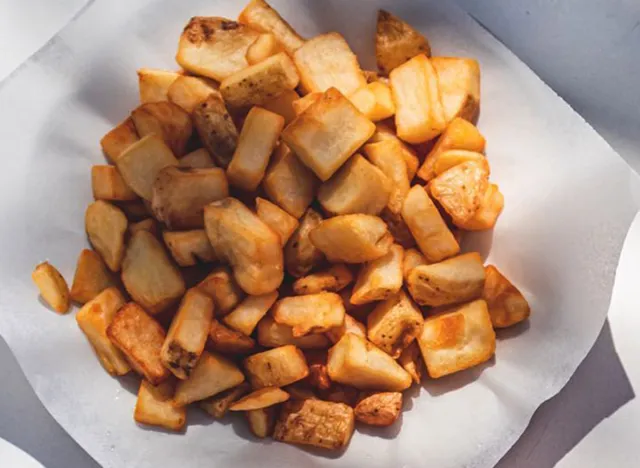
It’s pretty uncommon to consume potatoes raw, but in case you needed further reason to cook them, note that raw potatoes (especially green ones) can contain a high concentration of the toxin solanine. On top of that, raw potatoes have anti-nutrients, which are substances that prevent your body from absorbing the vegetable’s key vitamins and minerals. Another solid reason to boil, roast, or bake this veggie is that the uncooked starch in raw potatoes can cause all kinds of digestive discomfort.
Artichokes
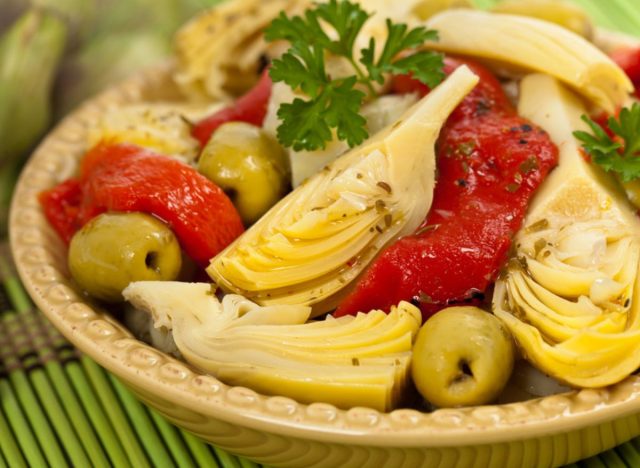
Did you know that artichokes are an antioxidant powerhouse, and they’re one of the vegetables that are healthier cooked? But in order to get the most bang for your buck in that regard, you’ll need to cook it. One 2008 study in the Journal of Agricultural and Food Chemistry found that steaming artichokes increased their antioxidant levels by 15-fold. Boiling them, meanwhile, only boosted them by 8-fold. Even popping them in the microwave can enhance their antioxidant content. The reason why boiling isn’t the best option is that this cooking method can cause the vegetable to lose certain water-soluble vitamins in the water.
